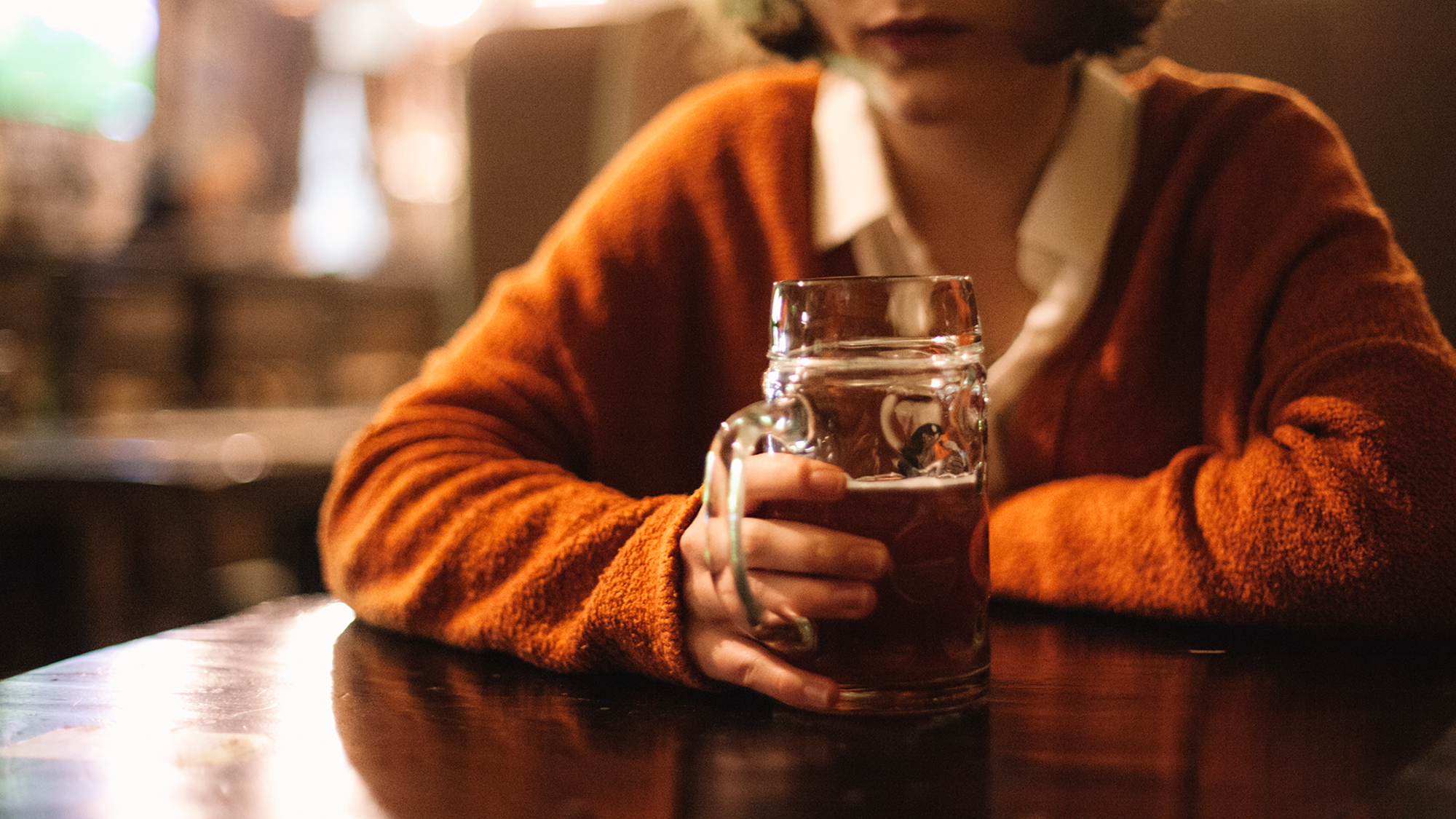How bad is Britain's booze problem?
England has highest rate of child alcohol consumption but Gen Z is the 'most sober' age group yet

A free daily email with the biggest news stories of the day – and the best features from TheWeek.com
You are now subscribed
Your newsletter sign-up was successful
England is "top of the charts" globally for child alcohol abuse, according to a World Health Organization (WHO) study of 44 countries.
More than half of English children have drunk alcohol by the age of 13, the research found. Dr Jo Inchley, international coordinator for the study from the University of Glasgow, told The Guardian that "we're seeing really high levels of early initiation into drinking amongst boys and girls in England".
The study has added to the perception that the UK is facing an alcohol emergency, but other research and statistics paint wildly differing pictures of the nation's relationship with booze.
The Week
Escape your echo chamber. Get the facts behind the news, plus analysis from multiple perspectives.

Sign up for The Week's Free Newsletters
From our morning news briefing to a weekly Good News Newsletter, get the best of The Week delivered directly to your inbox.
From our morning news briefing to a weekly Good News Newsletter, get the best of The Week delivered directly to your inbox.
What did the commentators say?
British women are "leading the world in binge drinking", said Zoe Williams in The Guardian last year, after the Organisation for Economic Co-operation and Development compared alcohol consumption across 33 countries. Celia Walden in The Telegraph said that a "booze problem" at British theatres suggested we "can't do anything without a drink".
The perception of Britain becoming an increasingly boozy nation was strengthened by a report last year by the House of Commons Public Accounts Committee that found deaths from alcohol had risen by 89% over the previous two decades. The study also found that an estimated 10 million people in England "regularly exceed" the chief medical officers' low-risk drinking guidelines.
This week, The Times reported that the number of alcohol-related deaths in Scotland has increased by 25% in three years. Alcohol Focus Scotland warned that Scotland's NHS could be facing a "ticking timebomb of alcohol-related illness and deaths". Experts were "particularly alarmed" by a "concerning" increase in "booze-related fatalities" among middle-aged women, said the Daily Mail.
But the English "have always been drunkards", said Ed West on UnHerd in 2020. And "when national newspapers warn about the growing problem of alcohol", they are "echoing a national fear that dates back at least to the earliest English speakers".
A free daily email with the biggest news stories of the day – and the best features from TheWeek.com
Others present a very different picture. Britain is "losing its taste for alcohol", wrote Henry Jeffreys in The Spectator, and around a quarter of 16- to 24-year-olds "don't drink at all". In another recent study, seven in ten young Britons said that "the reason they didn't drink is because they have so many other ways to be entertained".
Gen Z associate alcohol with "vulnerability", "anxiety" and "loss of control" amid the "ever-present possibility of online disgrace", said Jeffreys. Gen Z are "obsessed with their health" and "want to look good for social media".
This age bracket "appears to be our most sober one yet", said Sky News. A recent survey by YouGov and the Portland Group alcohol watchdog found that 39% of 18- to 24-year-olds don't drink alcohol.
Twenty-somethings are "frank about their distaste for getting wasted", said Rosa Silverman in The Telegraph last year, as she argued that Britain is "turning its back on booze". She cited YouGov data that found almost one in five of Britons of all ages (18%) do not drink alcohol at all, while almost a third (29%) of drinkers said they drank less than before the Covid pandemic.
What next?
A record number of people died from alcohol-related causes in the UK in 2022, fuelling campaigners calls for government action, said The Guardian. "Years of inaction on alcohol harm has led to this," said Dr Richard Piper, the chief executive of Alcohol Change UK, "and the heartbreaking thing is these deaths were totally avoidable."
The total of 7,565 deaths was nearly 2,500 more than in 2019, according to the Office for National Statistics. Piper added that the government "has the responsibility and the power to put preventative measures in place", including "proper regulation of alcohol marketing, clearer alcohol labelling, and a minimum price for a unit of alcohol".
Commenting on the WHO's findings on British children and alcohol, Dr Katherine Severi, chief executive of the Institute of Alcohol Studies, also called for a change in behaviour and attitudes at home.
"People tend to have this perception that introducing children to moderate drinking is a good way of teaching them safer drinking habits," she said. But "the earlier a child drinks, the more likely they are to develop problems with alcohol in later life".
Chas Newkey-Burden has been part of The Week Digital team for more than a decade and a journalist for 25 years, starting out on the irreverent football weekly 90 Minutes, before moving to lifestyle magazines Loaded and Attitude. He was a columnist for The Big Issue and landed a world exclusive with David Beckham that became the weekly magazine’s bestselling issue. He now writes regularly for The Guardian, The Telegraph, The Independent, Metro, FourFourTwo and the i new site. He is also the author of a number of non-fiction books.
-
 Local elections 2026: where are they and who is expected to win?
Local elections 2026: where are they and who is expected to win?The Explainer Labour is braced for heavy losses and U-turn on postponing some council elections hasn’t helped the party’s prospects
-
 6 of the world’s most accessible destinations
6 of the world’s most accessible destinationsThe Week Recommends Experience all of Berlin, Singapore and Sydney
-
 How the FCC’s ‘equal time’ rule works
How the FCC’s ‘equal time’ rule worksIn the Spotlight The law is at the heart of the Colbert-CBS conflict
-
 A Nipah virus outbreak in India has brought back Covid-era surveillance
A Nipah virus outbreak in India has brought back Covid-era surveillanceUnder the radar The disease can spread through animals and humans
-
 Is the US about to lose its measles elimination status?
Is the US about to lose its measles elimination status?Today's Big Question Cases are skyrocketing
-
 Stopping GLP-1s raises complicated questions for pregnancy
Stopping GLP-1s raises complicated questions for pregnancyThe Explainer Stopping the medication could be risky during pregnancy, but there is more to the story to be uncovered
-
 Tips for surviving loneliness during the holiday season — with or without people
Tips for surviving loneliness during the holiday season — with or without peoplethe week recommends Solitude is different from loneliness
-
 More women are using more testosterone despite limited research
More women are using more testosterone despite limited researchThe explainer There is no FDA-approved testosterone product for women
-
 Covid-19 mRNA vaccines could help fight cancer
Covid-19 mRNA vaccines could help fight cancerUnder the radar They boost the immune system
-
 Climate change is getting under our skin
Climate change is getting under our skinUnder the radar Skin conditions are worsening because of warming temperatures
-
 Is this the end of ultraprocessed foods?
Is this the end of ultraprocessed foods?Today's Big Question California law and the MAHA movement are on the same track